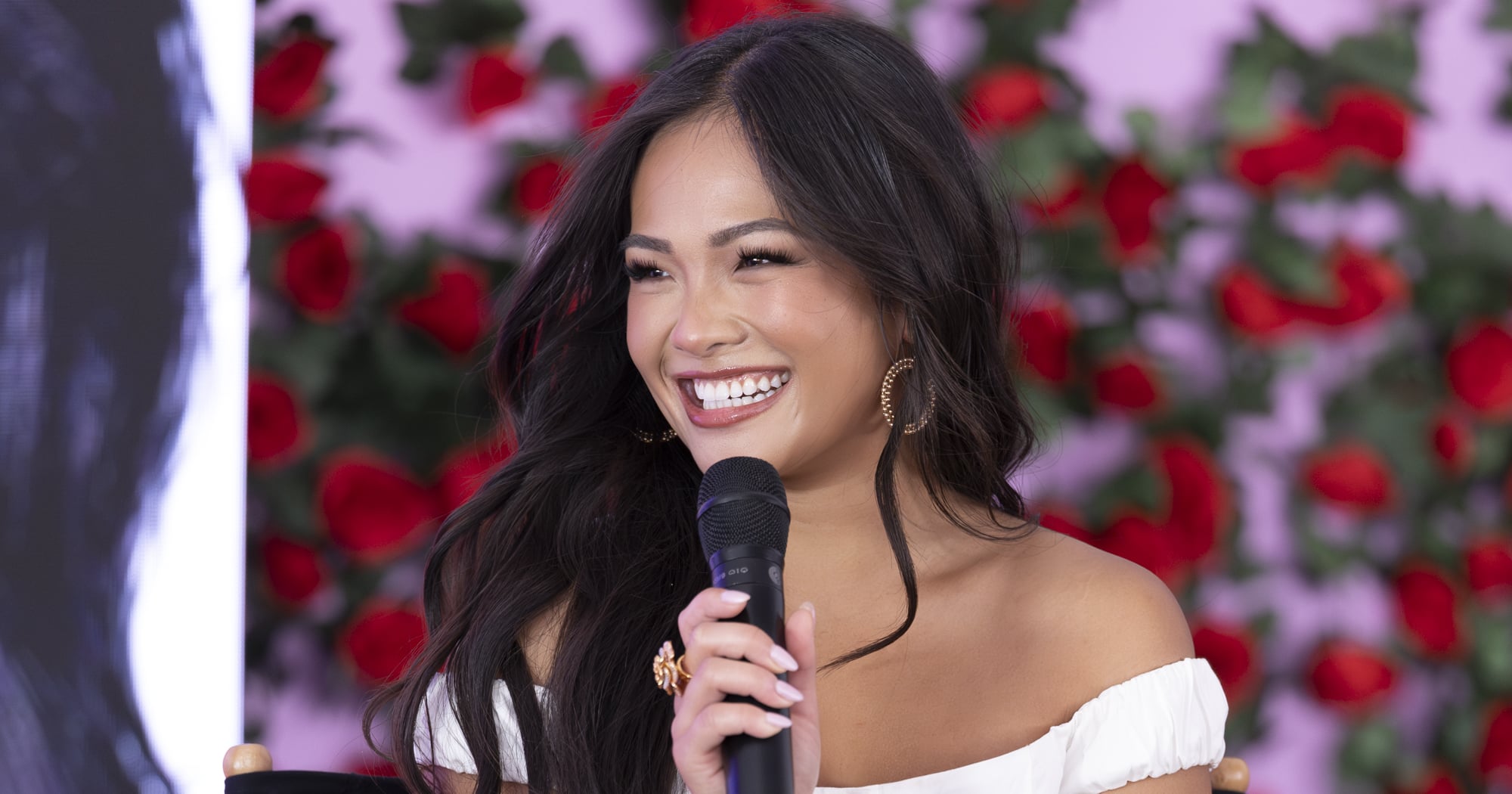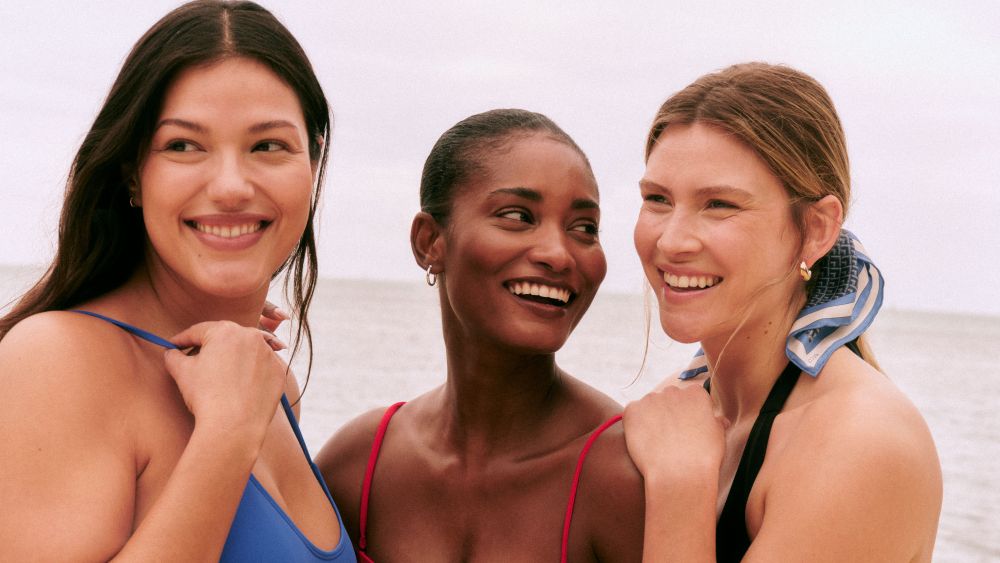Being the first-ever Asian American Bachelorette isn’t a responsibility Jenn Tran takes lightly. She’s also the first Asian American lead in the franchise’s 22-year history, which includes almost 50 seasons of “The Bachelor” and “The Bachelorette” combined. “Immediately, I was like, am I the right person for this? Am I going to be able to make everyone proud and everyone happy?” she tells PS in a recent interview.
Before she was able to get excited about the possibility of meeting her future husband, Tran, who’s Vietnamese American, felt pressured by whether she was “Asian enough” for the role and wanting to make her family – and fellow Asian Americans – proud. “I know how strict Vietnamese culture can be, and to be in this role and to be doing a reality dating TV show, it is so different,” she says. But ultimately, after many conversations with her mom and ensuring her family was comfortable with her decision, Tran set out to “just be myself” on screen and become “the role model I always wanted as a kid.” It was important for her to showcase both the Vietnamese and American sides of her identity, and show that “I’m not fully one or the other.”
All I hope is that me just being me and the exposure to my season and my culture is going to open people’s minds and hearts.
Since her casting was announced and season 21 of the series commenced on July 8, she’s received an overwhelming amount of support from the Asian American community – but the exposure doesn’t come without hate. “I’ve lived in very diverse cities, so I hadn’t dealt with those comments head-on, like, ‘go back to the shoe factory,’ since middle school,” she says. “I can’t believe that people out there still think in this manner and have these racist opinions. But all I hope is that me just being me and the exposure to my season and my culture is going to open people’s minds and hearts. I’m so confident in who I am now, and I’m at a point where I embrace my culture so much and I’m not ashamed of it. If anything, [the hate] makes me want to make a bigger change in the world.”
Ahead, Tran opens up about embracing her identity, navigating microagressions and stereotypes in the dating world, and whether she’s ever gotten back together with an ex.
PS: Why was it so important to you to represent Vietnamese culture and your family dynamics on screen?
Jenn Tran: I wanted the show to be as authentic to my life as it could be. During those intro package scenes, my mom was like, “Should we make sandwiches?” And I was like, “No, we would never do that in real life. If I came over, you’d be making Vietnamese food.” And she was like, “Should I be speaking English?” And I was like, “No, we don’t speak English at home, and I wouldn’t want you to do that just for TV.” It was important for me to be able to just be me and not feel like I was acting in some sort of way. I got such an overwhelming response from those scenes and it really touched my heart to see that it allowed so many people to feel less alone.
PS: You’ve spoken about not always feeling proud of your heritage and culture – which is a common experience for Asian Americans and children of immigrants. When did you feel that shift and start to embrace your identity as an Asian American?
JT: It took so long for me to grow into my own and get that confidence to be able to embrace my culture. I had really low confidence and self-esteem growing up and I wanted to be like everybody else. It wasn’t until late high school and college that I was able to have this fresh start and be like, I don’t want to shy away from my culture anymore because that means hiding a part of who I am. Some of my friends in high school would come over to my house and be so excited to talk to my mom and get to know our culture, and it was little moments like that when I realized, OK, it’s not as bad as I’m making it up to be in my head. I’m still learning so much about my culture every day.
PS: I know you previously said you were disappointed in the lack of Asian American men in your season’s cast. Were you expecting a more diverse pool of men going into filming?
JT: I can’t really speak to the casting decisions, but it is unfortunate that there weren’t more Asian men for that representation.
PS: In your dating life prior to the show, did you have racial preferences in your dating life?
JT: I recently learned about the Oxford study thing. [Editor’s note: Trolls on TikTok often use the term “Oxford study” to criticize Asian women for dating white men, referencing an old study on the prevalence of romantic relationships between white men and Asian women.] It’s so annoying that everyone wants to put their opinion on you and put you in this box of like, OK, she’s another typical Asian girl picking a white man. What I’m going to say to that is, that’s just not true. I have definitely dated outside of my own race and within my own race as well. I have dated many, many different types of people from different races and different cultures, and it doesn’t matter to me as long as they are a good person.
PS: I think women of color, and Asian American women in particular, often face this extreme scrutiny and racism when it comes to dating preferences.
JT: I think it also stems from the fetishization of Asian women. People view us as somebody who’s going to easily succumb to others, and they always want us to go along with whatever because we’re so willing to help others and be good partners, that they think that we’re inferior in some way.
PS: Absolutely. Have you dealt with this fetishization or microaggressions in general when dating before?
JT: In my dating life prior to the show, I don’t think that I experienced something like that. I definitely had partners that weren’t as open to my culture and as empathetic or understanding of what it’s like to date an Asian woman, so going forward, I definitely have been more cautious of that. I need someone who is open to understanding what it’s like to date an Asian woman. It’s about the effort and initiative to learn about your culture. I want my partner to be open to learning about my culture, food, and the customs we have. They don’t have to fully speak Vietnamese. But it’s important they respect the traditions that come with it.
PS: I know you worked with a DEI consultant on the show during filming. What was that experience like?
JT: I called to her anytime I felt like I was going to enter a conversation surrounding race and culture. I knew it was going to be televised and I would never want to offend anybody, so I wanted to make sure I had the right terms down. I can speak about it in my everyday life, but I want to be sure that I am doing everybody justice and doing it in a way that’s respectful. It was nice to be able to talk through thoughts that I was having to make sure that I could relay them in a way that made sense. None of that has been aired yet, but I definitely have a lot of conversations surrounding race and culture later on as things get more serious, as the season progresses.
PS: In the preview for the next episode [airing Aug. 5], we see that your ex makes an appearance and wants to join the other contestants. What was it like to see him?
JT: I was so shocked to see him show up. I had no idea he was going to do that, especially because we were in New Zealand. I mean, it was a friendly face, so at first when I saw him, I was like, oh, is he here to give me a hug and advice? I had no idea he was feeling the way that he felt.
PS: Are you generally for or against getting back together with an ex?
JT: My general stance on getting back together with an ex is dependent on the ex and the situation. It’s something that I have done in the past, prior to this experience. I think it’s just so dependent on the relationship.
This interview has been edited and condensed for clarity.
Yerin Kim is the features editor at POPSUGAR, where she helps shape the vision for special features and packages across the network. A graduate of Syracuse University’s Newhouse School, she has over five years of experience in the pop culture and women’s lifestyle spaces. She’s passionate about spreading cultural sensitivity through the lenses of lifestyle, entertainment, and style.




